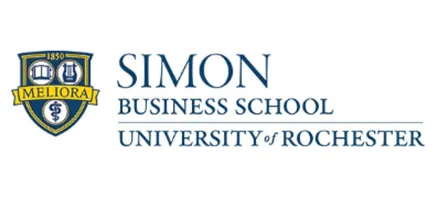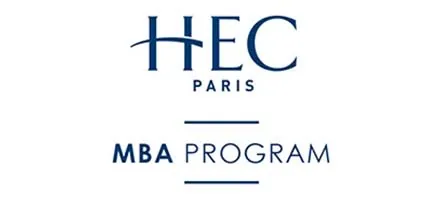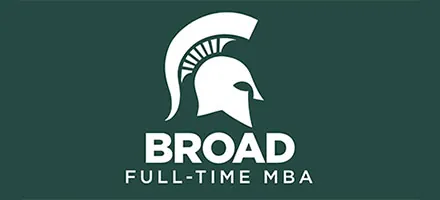
Rankings aren’t perfect. Any site or publishing company that tries to convince you otherwise shouldn’t be trusted. In fact, many online rankings have no credibility whatsoever because they are based on vague methodologies and metrics that do not measure the quality of the programs (see The Biggest Rankings Scam On The Planet). Instead, they’re meant to get website clicks to funnel readers into leads for the schools that pay for those clicks.
At Poets&Quants, we try to create rankings that matter to professionals who are making significant educational investments in themselves. So we approach the task with the utmost integrity and the most methodical and thoughtful way possible. Part of that process is openly sharing our entire process, our final methodology, and all the survey data we gather to create the final ranking. How we created our third annual ranking of online MBA programs for 2020 underscores these values.
Earlier this year, we placed our alumni survey, school survey, and methodology in a Google doc and invited deans and senior administrators at more than 70 online MBA programs to comment, edit, and make suggestions to our rankings materials. After a few weeks, we carefully read and digested that feedback for the purpose of improving the ranking.
Then we created our school and alumni surveys along with any refinements in our methodology. The methodology is built on the belief that the best way to measure an MBA program is to equally weight the quality of incoming students, the actual educational experience as rated by recently graduated alums, and the career outcomes of graduates.
Some 1,583 out of 8,381 alums responded to our survey, for a response rate of roughly 19%. This year, 35 schools made the ranking, a small but premium subset of the more than 300 online MBA programs now being offered in the U.S. alone. No matter where these 35 schools rank on our list, they are among the very best offerings in a fiercely competitive and crowded market. It’s worth noting that many schools declined participation in our ranking, not wanting to expose their online programs to outside scrutiny. The schools in our ranking, however, offer programs at a wide range of price points, formats, and features. We strongly advise prospective students to use our list as the best possible guide to quality programs.
Even so, this is a fast-moving area of graduate management education, with several business schools recently launching new online programs at the University of Michigan, UC-Davis, and Rice University. Boston University will debut an online MBA next fall. Those programs have yet to graduate alumni so they cannot be included in our ranking.
POETS&QUANTS’ APPROACH TO ONLINE MBA RANKINGS
ADMISSIONS STANDARDS
This year, like last year, we asked schools to submit average GMAT scores for all students enrolling during the 2018-2019 academic year (July 1, 2018 to June 30, 2019). We also asked what percentage of the newly enrolled population submitted GMAT scores and combined that with the percentage of students enrolling during the same timeframe with at least 10 years of work experience. To calculate the final GMAT score, we multiply the average GMAT score by the total percentage of students reporting the GMAT and percentage of students with at least 10 years of work experience.
For example, if a school reported an average GMAT of 650 with 25% reporting scores and 25% with 10 years of work experience or more, the final GMAT score is 625. Requiring a GMAT score for online MBA programs isn’t common so this awards schools that do not require a GMAT score for enrolling seasoned professionals into their programs. Within the entire Admissions Standards category, this data point is weighted by 50%.
Carnegie Mellon’s Tepper School topped this data point, reporting an average GMAT of 669 with 83% reporting a score and 13.04% of the class having at least 10 years of working experience. The 669 GMAT score combined with 96.04% of the class either submitting a score or having 10 years of working experience converts the final score to 642.51.
Next, we ask schools to report the average undergraduate GPA of students enrolling during the 2018-2019 academic year and give it a 20% weight. This year, Indiana University’s Kelley School and Worcester Polytechnic Institute tied with the highest at 3.45. Washington State University followed closely behind at 3.44. Also give a 20% weight is the average work experience of students enrolling in 2018-2019. This year’s highest average is 14.4 years at Hofstra University’s Zarb School. Next is RIT Saunders at 14.0, followed closely by the Jack Welch Management Institute with 13.9 years. For the final 10% in the category, we calculated acceptance rates during the 2018-2019 enrollment cycles for each school. The school with the stingiest admissions this year was RIT Saunders at 30.77%. Next was the Jack Welch Management Institute at 40.38% and rounding out the top three was the University of South Florida at 45.70%.
ACADEMIC EXPERIENCE
For the academic experience category, we included an average of 11 questions on a one-to-10 scale and gave it a 75% weight in the category. Recent graduates were asked to rate different aspects of the online MBA program, including consulting projects, the flexibility of the program, relationships with professors, and how the program has translated directly to their jobs. Alumni seemed generally pleased with their programs as 10 schools earned an average of nine or above. At the top is RIT Saunders, which averaged 9.60, followed by Ohio University with 9.52. Rounding out the top three is the Jack Welch Management Institute with 9.50. At the bottom was Louisiana State University with 6.71.
The remaining 25% came from the average of two questions that explored whether students received a promotion or raise directly as a result of the program. Louisiana State University tied for the lead with Carnegie Mellon’s Tepper School with 75% of alums from both schools reporting a raise or promotion. At the bottom was Southern Illinois University where 11.11% said the program helped them notch a raise or promotion.
CAREER OUTCOMES
In career outcomes, we first asked graduates to identify their “primary” and “secondary” career-related goals for pursuing an online MBA. We purposely leave the question vague to allow for a wide variety of reasons why a student would pursue an online degree. Some may desire increased salaries or promotion. But others might want to increase their self-confidence and enhance their performance in their current jobs. We then asked graduates if they accomplished each goal directly because of the online MBA program. For the primary goal, four schools — RIT Saunders, UT-Dallas, WPI, and the University of Michigan-Dearborn — all scored a perfect 100%. Lowest was Villanova University and Southern Illinois University, each with 66.67%. This category was given a 40% weight.
Secondary goals were given a 20% weight and another four schools notched the perfect 100% score. At the top with a perfect score were USC Marshall, LSU, UT-Dallas, and RIT Saunders. At the bottom was Southern Illinois, again with 66.67%. Next, we asked students to rate their career coach or mentor if it was provided by the school and the effectiveness of the school’s career advising function. We took the average of those two categories and gave it a 20% weight. USC Marshall topped that list with 9.53, while LSU was at the bottom with 6.80. For the final 20%, we asked graduates to rate the career-advancing potential of their new alumni network. Carnegie Mellon Tepper topped this category with 9.44. At the other end was SUNY – Oswego, with 6.8.









